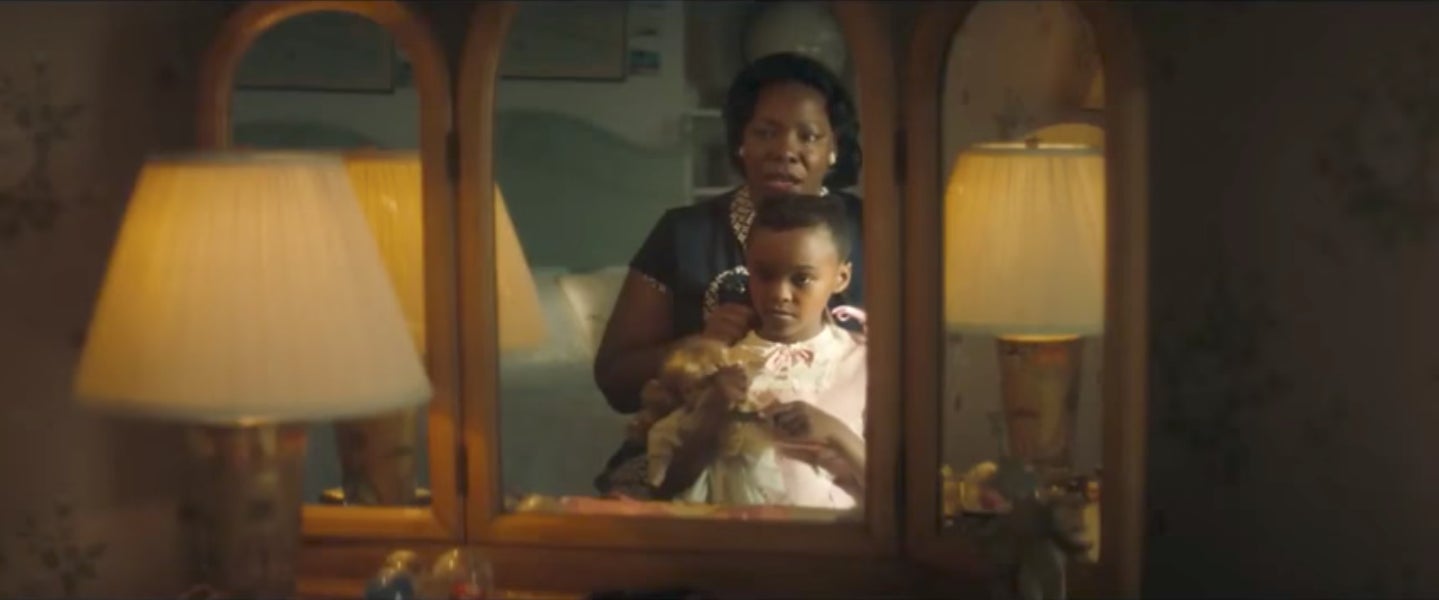Procter and Gamble’s new anti-racism ad is roiling white America
Parents across America squirm over having “the talk” with their children. For many parents, “the talk” refers to an awkward chat about the birds and bees. But for black Americans, it’s a distressing conversation about the racism their children have and will continue to experience.


Parents across America squirm over having “the talk” with their children. For many parents, “the talk” refers to an awkward chat about the birds and bees. But for black Americans, it’s a distressing conversation about the racism their children have and will continue to experience.
This difficult conversation is the subject of a new ad by home-products company Procter & Gamble (P&G), called “The Talk.” The ad is just over two minutes long, but it encapsulates decades of discussions about racism that black mothers have had with their children. Among the various parent-child scenarios is a mother telling her daughter how to behave if she gets pulled over. In the moving conversation, the mum says:
Mom: “Now, when you get pulled over …”
Daughter: “Ma, I’m a good driver don’t worry.”
Mom: “Baby, this is not about you getting a ticket. This is about you not coming home.”
Other conversations include a mother in the 1950s explaining to her daughter that being told she is “pretty for a black girl” is not a compliment, a mother in the 1960s explaining what the n-word means (“it’s an ugly, nasty word and you are going to hear it…But you are not going to let that word hurt you”), and a mother in the 1990s asking her young black son if he has ID before he goes to practice (“in case they stop you”). The ad, which ends by calling on everyone to “talk about bias,” is part of a larger P&G campaign titled “My Black is Beautiful.”
The reactions show just how deeply polarized discussions of race have become in the US.
For black Americans, the commercial isn’t groundbreaking. It’s simply a reflection of what they’ve known for decades—America is a deeply unequal country and it’s difficult to explain these hard truths to children. That said, P&G has won plaudits for giving a huge platform to a difficult issue. A columnist for the Cincinnati Enquirer reflected on “the talk” his grandmother gave him and the one he has to have with his three children, and congratulated the ad for its depiction. Another columnist for the Good Men Project praised the ad for showing “Black life in its most realistic form: dealing with self-love, coping with racial slurs, and preparing your children for the almost guaranteed encounter with the police.”
But, perhaps unsurprisingly, some others are furious at the company for, according to Conservative101.com, running a commercial that contains “an implicit attack on white Americans.” The site, which is among a growing number of hyperpartisan sites, goes on to describe the commercial as “one of the most racist advertisements ever made.” One popular Youtuber, Mike the Cop, asked his viewers, “Just imagine if the roles were reversed and instead of painting the entire group of law enforcement as this potentially deadly force when you get stopped by them, we painted, as cops, an entire race as potentially deadly?” The National Review, a right-leaning news site, also weighed in, slamming the commercial for presenting “a kinder, gentler version of Black Lives Matter propaganda. Others have accused P&G of “depicting a bye gone era [sic]” and “race baiting.”
Weeks after the ad was published, a survey by Harvard Harris released on Aug. 14 showed that voters were evenly split on whether the criminal justice system is biased against minorities. According to the same poll, 70% of respondents said black-on-black crime, not police violence against black people, is the “bigger problem today.”
P&G has stood by its commercial. It insists the campaign isn’t meant as a political statement, but depicts the conversations (paywall) that occur between mothers and their children. P&G had hoped to spark a conversation and it did—but the discussions don’t just highlight the difficulty of talking to children about racism, but getting other Americans to empathize with that experience.